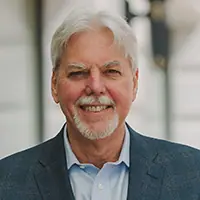
Do You Have a Committed Board?
 “Individual commitment to a group effort—that is what makes a team work, a company work, a society work, a civilization work.” —Vince Lombardi, Hall of Fame football coach
“Individual commitment to a group effort—that is what makes a team work, a company work, a society work, a civilization work.” —Vince Lombardi, Hall of Fame football coach
Vince Lombardi, who led the Green Bay Packers to five National Football League championships in the 1960s, including wins in the first two Super Bowls—and in my opinion was the greatest professional football coach of all time—was an organizational and motivational genius. At its simplest, the job of a head football coach is to take a roster of individual athletes and mold them into a team by getting them to make an “individual commitment to a group effort.” It’s not necessary that athletes in any team sport surrender their individuality, but they do need to put the team first.
I spend a lot of time thinking and writing about the traits and characteristics that make for an effective board, and it’s my belief that the level of personal commitment that a bank director brings to his or her board service is the defining characteristic that separates the winners from the losers (as Lombardi might say). But it’s not just a personal commitment to spend the necessary time in meetings and conference calls and to prepare for them in advance. Being an effective director also requires that you make a commitment to engage in the governance process, which is exactly the kind of group effort that Lombardi was talking about.
Do you believe that a board with strong governance practices and culture contributes to the bank’s profitability and goals? Are you willing to engage in a group effort where the whole (the board) is greater than the sum of its parts (you)?
I saw an impressive display of commitment last week at our second annual Bank Board Training Forum, which took place on March 5th and 6th at the Hermitage Hotel in Nashville. A pretty significant snow storm (for Nashville anyway) blew through the area the evening of the 4th and complicated the travel plans of many of the attendees, including yours truly. One director who drove to Nashville from Arkansas with his wife told me that they managed to keep just one step ahead of the storm through the entire trip as his wife anxiously monitored the storm’s progress on her smart phone as it seemed to be gaining on them. Given the weather and related travel challenges, it would have been easy for many of the attendees to just stay at home, but few of them did.
The day-and-a-half event featured sessions on audit, risk, compensation and governance issues, along with an economic and business overview of the banking industry today, and panels comprised of both directors and bank CEOs. It was a very successful event that seemed to engage the attendees. There were a number of banks who brought two or more directors, and often they would linger at their tables discussing a presentation they had just heard even though we had stopped for a refreshment break or lunch.
The wellspring of commitment is motivation. Most directors at the community bank level will never be paid at a level commensurate with their talent or the amount of time they devote to their board service—although hopefully they will at least be paid adequately, with the added benefit of stock holdings that increase in value over time if their bank is publicly owned. The really good bank directors that I have met are in the game because they understand the importance of banking as a system that supports our economy, and the important role that their banks play in the communities in which they live.
I see commitment in both an individual and group context. Are you willing to put in the necessary time to be an effective director? As the banking industry has grown more complex in recent years, the time demands of board service have increased. And are you willing to engage with other board members in a collective process, to discuss, to argue and when necessary, to compromise? Effective directors bring their brains to board meetings. They probe, they ask good questions, they offer their perspectives. And they work together.
Here’s another quote from Lombardi: “People who work together will win, whether it be against complex football defenses, or the problems of modern society.” Or, he might have added, the challenges of modern banking.



